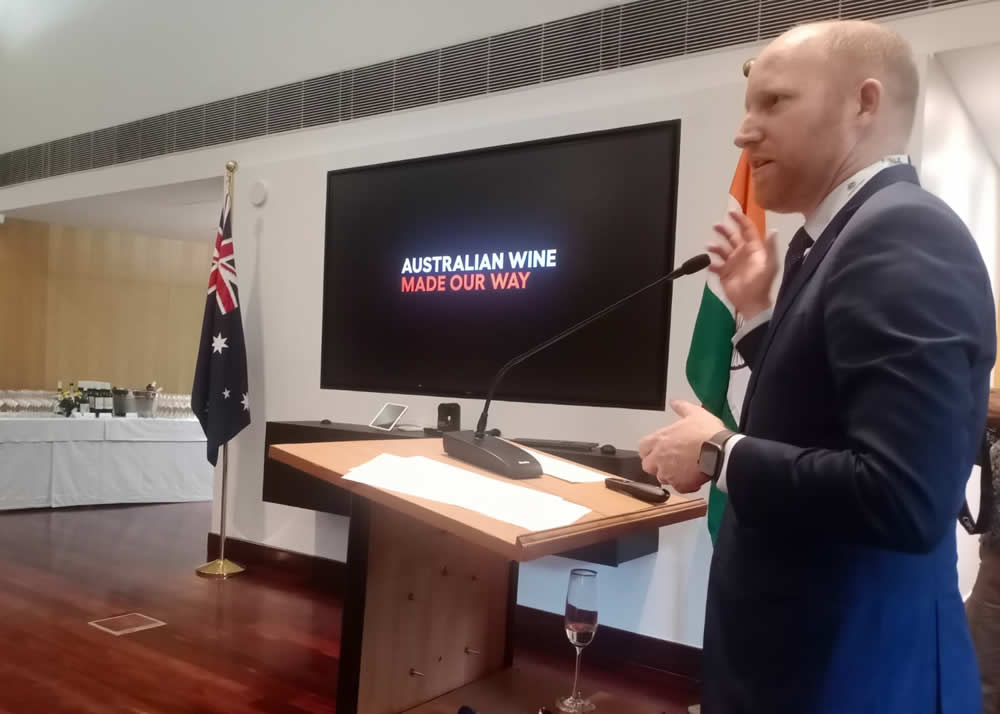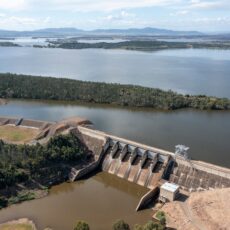Former Narrabri man John Southwell delivered welcome news to North Western farmers on Friday.
Mr Southwell, the son of Rob and Helen Southwell, is nowadays based in India and is the Australian government’s Trade and Investment’s South Asia commissioner.
Mr Southwell’s Friday post on LinkedIn that the Indian government has announced it has removed its tariffs on desi chickpeas until March next year has been greeted enthusiastically by farmers.
The much-anticipated announcement of the removal of the tariffs, effective immediately, aligns with the coming chickpea planting season later this month.
“India has issued a notification that has eliminated tariffs on desi chickpeas (Bengal gram – HS code 07132020) until March 31, 2025,” Mr Southwell said
“This is the first time India has reduced its duties on desi chickpeas since the crippling imposition of tariffs in 2017/2018 and reflects a need to bring pulse prices under control.”
India’s tariff on desi chickpeas has equated to around 66 per cent of the price.
It was imposed after much of Australia’s record 2016-17 crop of two million tonnes had been exported.
Challenging seasons and the Indian tariffs meant no crop since has exceeded one million tonnes.
Excellent subsoil moisture in Australia’s major growing regions, as well as anticipation about the reopening of the Indian market, mean a crop of more than one million tonnes seems certain this year, observers predicted.
The suspension of tariffs has been welcomed as a ‘game changer.’
“This welcome decision by the Indian government shows the value of continued, respectful government and industry engagement with a highly valued trading partner,” Grains Australia Pulse Council chair Peter Wilson said.
Tariffs on chickpeas initially equating to 33pc were first established by India in 2017-18, effectively eliminating Australian chickpea exports into India, the world’s biggest consumer of chickpeas.
Mr Wilson said the suspension of the tariffs was likely to deliver more reliable pricing for Australian chickpeas and add depth to already solid markets.
Meanwhile, trade, and the development of a strategic alliance between Australia and India, is continuing to grow.
The Australia-India Economic Cooperation and Trade Agreement (ECTA) came into force on December 29, 2022.
Over 85 per cent of Australian goods exports by value to India are tariff free, rising to 90 per cent by January 1, 2026, and high tariffs have been reduced on further agricultural products, Minister for Trade and Tourism, Senator Don Farrell said when the ACTA deal was signed.
In addition, 96 per cent of imports from India are now tariff-free, rising to 100 per cent by January 1, 2026.
The fast-growing Indian market of over 1.4 billion people is opening up for Australia.
“Australia and India are increasingly working together as strategic and economic partners,” the Prime Minister Mr Albanese said when the trade agreement was signed.
“We elevated our relationship with India to a Strategic Partnership in 2009 and to a Comprehensive Strategic Partnership in 2020,” Mr Albanese said when ACTA was agreed.
“The Australia-India Economic Cooperation and Trade Agreement is the next step in elevating our relationship with India, the world’s fastest growing large economy.”
To order photos from this page click here




